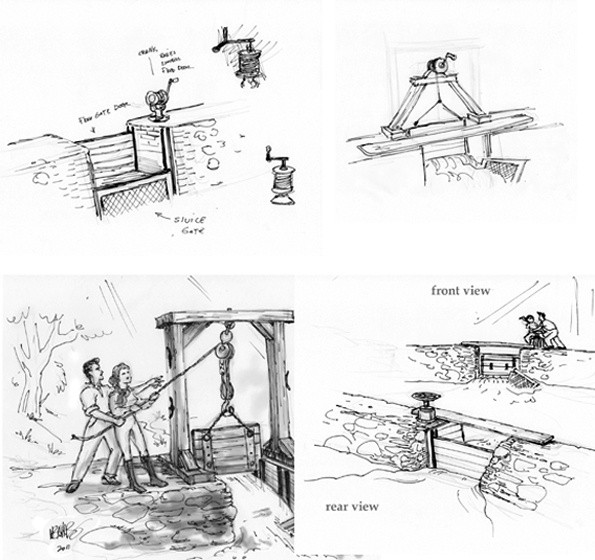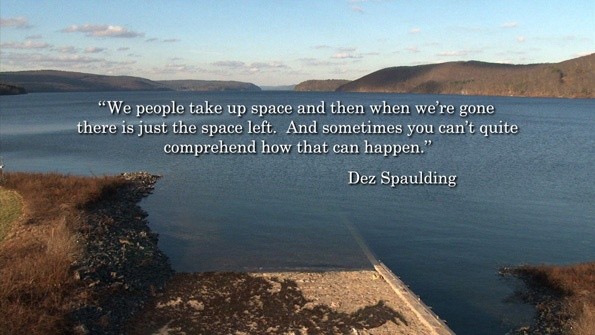 I’ve always known that if I can’t clearly see a character or a scene, then the reader surely won’t be able to. Yet even though I knew better, I did submit the Cascade manuscript with a fuzzy part I hoped no one would notice: At one point, Dez and Jacob open a dam. I had no idea what that dam really looked like. I wrote about it in a summarizing, detail-less way, and hoped no one would notice. Of course, I should have known better, and of course my editor noticed:
I’ve always known that if I can’t clearly see a character or a scene, then the reader surely won’t be able to. Yet even though I knew better, I did submit the Cascade manuscript with a fuzzy part I hoped no one would notice: At one point, Dez and Jacob open a dam. I had no idea what that dam really looked like. I wrote about it in a summarizing, detail-less way, and hoped no one would notice. Of course, I should have known better, and of course my editor noticed:
[pgi1]Hard to picture this, why is there a gap? How was the wedge stone hanging before?
I realized the whole scene was too vague to be believable. I needed to rewrite it, but first I needed to be able to SEE it. I enlisted the help of an artist, my brother Michael, who, fortunately, is more mechanical-minded than I am. He drew up various pictures of possible dams. Once I had these visuals, fleshing out the scene with details was a cinch.

